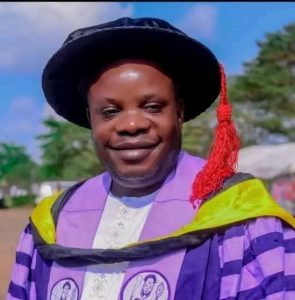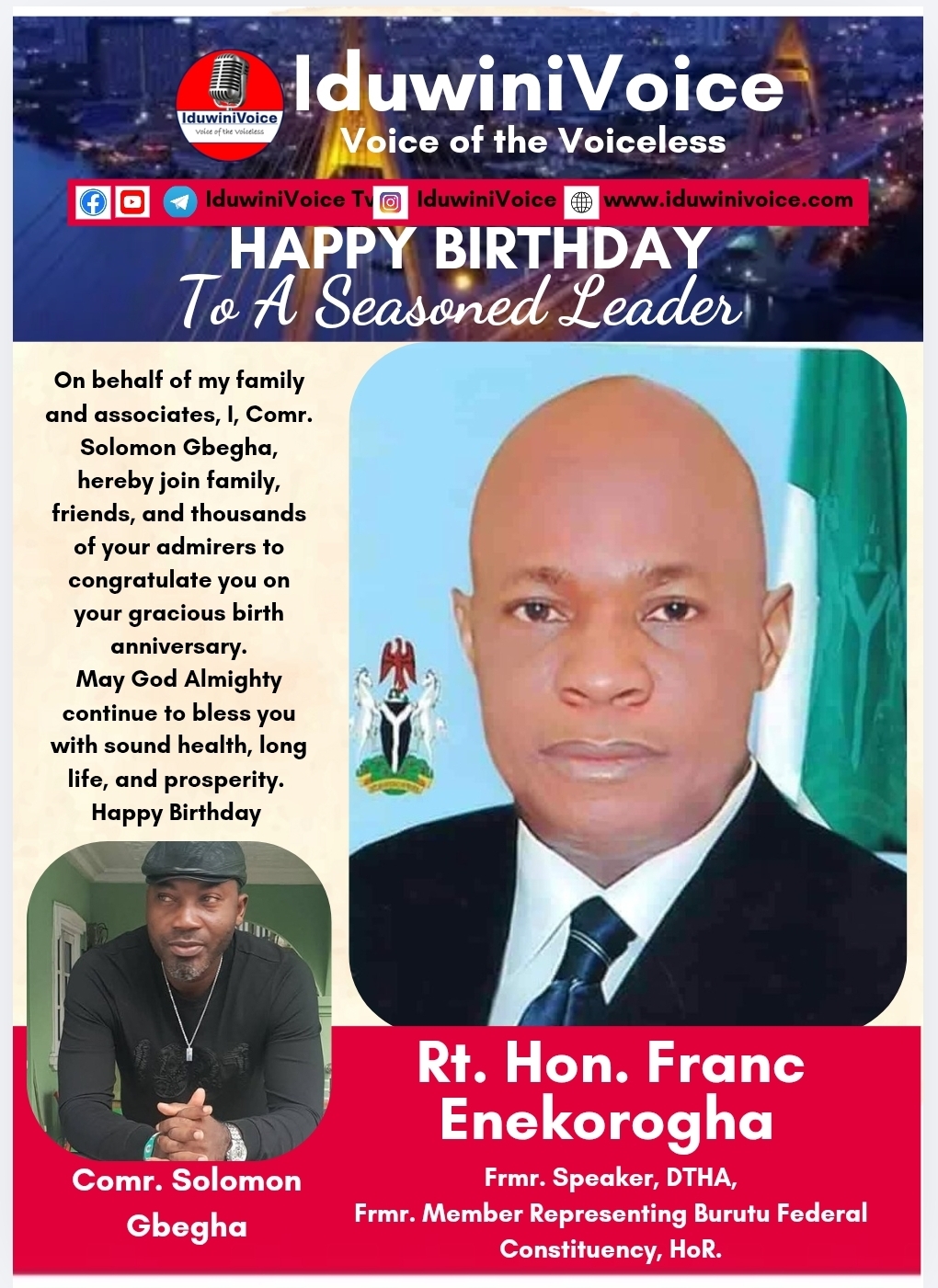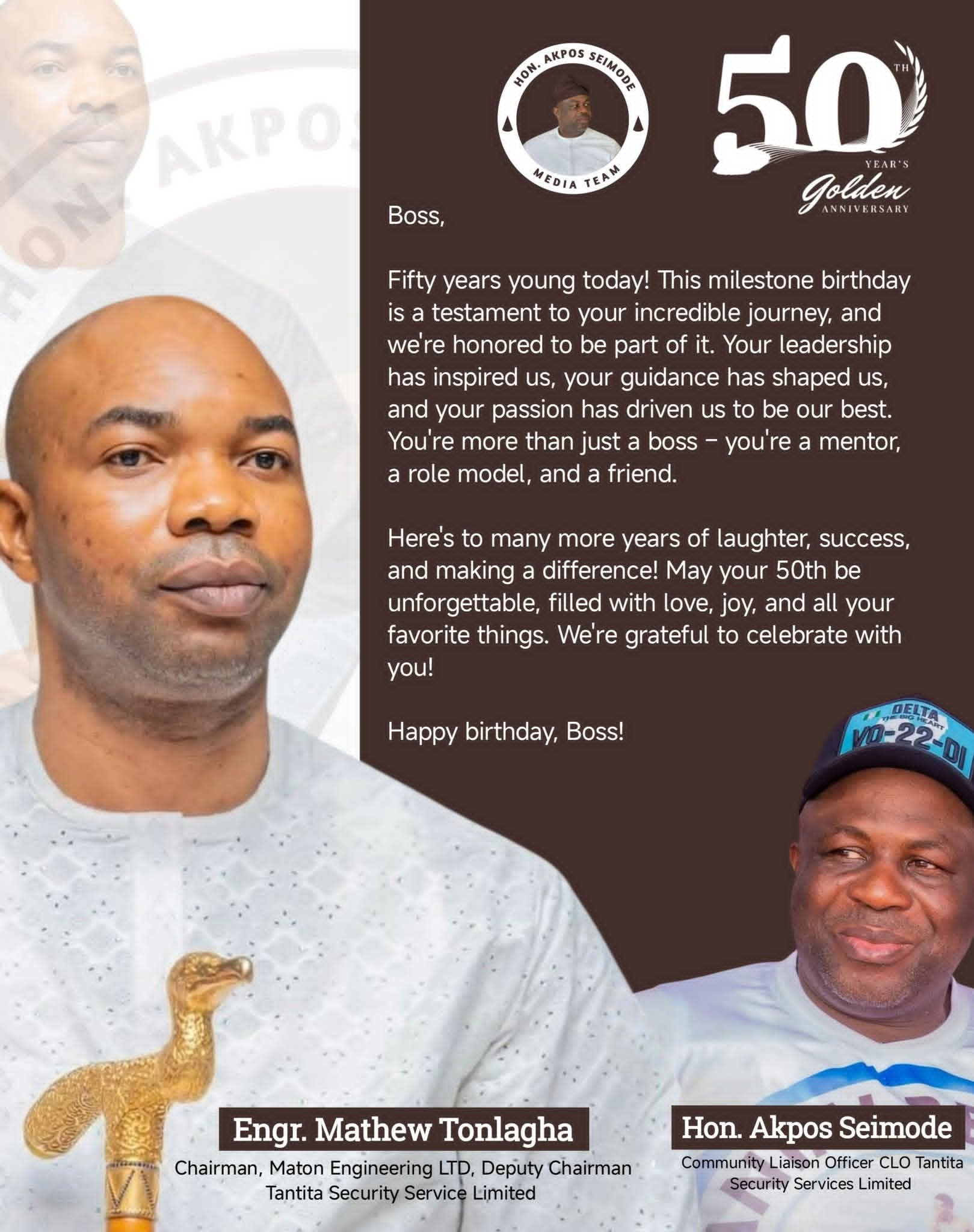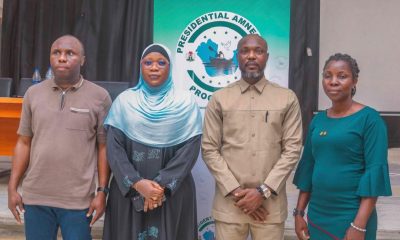Advert
OTUARO: SUSTAINING PEACE AND PROGRESS IN THE NIGER DELTA

By Favour Bibaikefie
In March 2024, President Bola Tinubu reaffirmed his commitment to achieving lasting peace in the oil-rich Niger Delta. Departing from tradition, he took a decisive step by appointing Dr. Dennis Otuaro as the Administrator of the Presidential Amnesty Programme (PAP). This move marked a clear shift from the usual practice of appointing retired military officers to oversee the agency, which plays a pivotal role in ensuring stability in the region.
Dr. Otuaro’s appointment signaled a new era for the Niger Delta, bringing renewed confidence and hope to stakeholders who had long sought meaningful engagement and development. Unlike his predecessors under President Muhammadu Buhari—Col. Dixon Dikio and Gen. Barry Ndiomu—who operated under the uncertain title of “interim administrators” amidst plans to scrap the agency, Dr. Otuaro’s leadership has been met with widespread optimism.
A native of the Niger Delta with deep-rooted understanding of the region’s struggles and aspirations, Dr. Otuaro requires no introduction to the challenges that led to the Presidential Amnesty Programme’s creation during the late President Umaru Yar’Adua’s administration. Known for his passion for peace and sustainable development, Otuaro quickly set the tone for his tenure, declaring his focus on revitalizing the programme to serve its foundational objectives.
Upon assuming office, he emphasized collaboration and stakeholder engagement as the bedrock of his strategy. “I need everyone’s cooperation to take this programme to greatness,” he said, underscoring the need for unity in achieving the President’s vision for the region.
In a display of his commitment to dialogue and transparency, Otuaro embarked on a tour of the six universities partnered with the PAP in Edo, Delta, and Bayelsa States between May 7th and 11th, 2024. These institutions—such as Igbinedion University, Benson Idahosa University, and Bayelsa Medical University—host beneficiaries of the PAP scholarship scheme. Otuaro’s personal visits marked a first for the programme’s leadership, reflecting his hands-on approach to addressing student concerns and fostering cooperation.
The momentum continued in June when Otuaro convened a major consultative summit with former agitators and other stakeholders in Warri, Delta State. Themed “Fostering, Consolidating, and Collaborating for Peace, Security, Stability, and Development in the Niger Delta,” the event focused on uniting the region to prevent a relapse into past conflicts that disrupted lives and stunted economic growth.
Recognizing the integral role of women in promoting peace and development, Otuaro expanded his consultations in September, hosting a groundbreaking summit in Warri titled “Niger Delta Women Empowerment: A Panacea for Peace, Stability, and Economic Growth.” Prominent women leaders, including AnnKio Briggs, Ibiba Don-Pedro, and Rosemary Naingba-Oduone, attended the forum, where Otuaro reaffirmed his resolve to include women in key initiatives of the PAP.
Traditional institutions also featured prominently in Otuaro’s engagement strategy. At a conference titled “Working Together for Sustainable Peace, Security, Stability, and Development in the Niger Delta,” respected monarchs from across the region, such as HRM King Justice Tabai of Tuomo Kingdom and HRM King Peremobowei Erebulu of Kabowei Kingdom, pledged their support for President Tinubu’s developmental plans for the Niger Delta under Otuaro’s leadership.
Beyond public engagements, Otuaro held private consultations with political leaders, including Ijaw elder statesman Pa Edwin Clark, former President Goodluck Jonathan, governors, and federal lawmakers. These efforts were aimed at fostering unity and mobilizing resources for the region’s growth.
True to his priorities, Dr. Otuaro has focused on empowering the Niger Delta’s youth through education, skills acquisition, and vocational training. Between March and December, hundreds of beneficiaries were enrolled in key sectors, including aviation, maritime, and agriculture. Notably, 98 trainees were certified in maritime skills, while 1,700 students received undergraduate scholarships through a transparent process that earned widespread acclaim.
Otuaro’s leadership aligns with President Tinubu’s Renewed Hope Agenda, prioritizing peace and economic stability in the Niger Delta. His results-oriented approach, characterized by stakeholder inclusion and strategic empowerment, has bolstered confidence that enduring peace and progress in the region are achievable.
Dr. Dennis Otuaro’s tenure is steadily laying a foundation for stability and growth, marking a significant step toward the Niger Delta’s long-awaited transformation. His efforts demonstrate not just a commitment to the President’s vision but also a deep resolve to uplift the people of the region.
Advert
Comr. Solomon Gbegha Felicitates Rt. Hon. Franc Enekorogha on Birth Anniversary

By Derick Peretengboro
A community leader and businessman, Comrade Solomon Gbegha, has extended warm birthday wishes to a celebrated personality and seasoned political figure, and mentor, Rt. Hon. Franc Pinapinawei Enekorogha, former Speaker of the Delta State House of Assembly, and former Honourable Member Representing Burutu Federal Constituency, House of Representatives, Abuja, on the occasion of his gracious birth anniversary.
In a congratulatory message made available to IduwiniVoicenewsdesk, Comr. Gbegha joined family members, friends, and admirers of the celebrant to mark the special day with prayers and goodwill.
According to the statement, “On behalf of my family and associates, I, Comr. Solomon Gbegha, hereby join family, friends, and thousands of your admirers to congratulate you on your gracious birth anniversary.
May God Almighty continue to bless you with sound health, long life, and prosperity.
Happy Birthday.”
The message reflects the deep appreciation and goodwill of Comr. Gbegha and his associates towards the celebrant, who have produced many political and social giants across Delta State, while wishing him continued divine blessings, good health and enduring success.
Advert
IYC Western Zone Information Officer to Lead Digital Skills Bootcamp for Ijaw Youths

By Divine Perezide
The Information Officer of the Ijaw Youth Council (IYC), Western Zone, Comrade Tare Magbei, has announced plans to organise a two-day digital capacity-building programme targeted at young people across the zone.
The training, titled Media Management, Content Creation and AI Prompting Bootcamp, is scheduled to take place from February 13 to 14, 2026, and is aimed at building practical skills in media, digital communication and emerging technologies for Ijaw youths.
According to the organisers, the bootcamp will focus on strengthening young people’s ability to engage in advocacy, storytelling and community mobilisation through modern media tools.
About 50 participants are expected to benefit from the hands-on sessions, which will also introduce them to viable income-generating opportunities within the media and creative industries.
Beneficiaries will be selected from among Information Officers of the Ijaw Youth Council (IYC) in the Western Zone, alongside youths drawn from the 24 clans that constitute the zone.
The initiative, being driven by Comrade Magbei, is described as a strategic effort to enhance youth capacity, promote digital relevance and encourage the effective use of technology in today’s rapidly evolving media environment. It is also seen as a timely intervention to improve employability and strengthen advocacy among Ijaw youths across the Western Zone.
Advert
CLO Tantita, Akpos Seimode, Felicitates Engr. Matthew Tonlagha on 50th Birthday

By Derick Peretengboro
The Community Liaison Officer (CLO) of Tantita Security Services Limited, Hon. Akpos Seimode, has congratulated the Deputy Chairman of Tantita Security Services Limited and Chairman of Maton Engineering Limited, Engr. Matthew Tonlagha, on the occasion of his 50th birthday anniversary.
In a goodwill message released to mark the celebration, Hon. Akpos hailed the business executive, stating: “HAPPY GOLDEN JUBILEE BIRTHDAY, BOSS!”
According to the statement, “The Community Liaison Officer, CLO Tantita, Hon. Akpos Seimode, hails deputy chairman Tantita Security Service Limited, cum chairman Maton engineering LTD, Engr. Matthew Tonlagha on his 50th birthday anniversary.”
Describing the celebrant’s personality and impact, Hon. Akpos said, “Matthew Tonlagha is a humble and distinguished son of the Izon Nation,” while praising his “visionary leadership and philanthropic contributions to society.”
He further noted that the celebrant’s leadership approach remains a source of encouragement to many communities, stressing that “his leadership style continues to inspire hope and unity across communities,” and describing him as “a bridge-builder who leads with humility.”
Hon. Akpos also offered prayers and best wishes to the celebrant, saying he wished him “good health, joy, and continued grace as he celebrates the Golden Jubilee.”
He concluded the message with the words: “Happy birthday once again, boss.”










